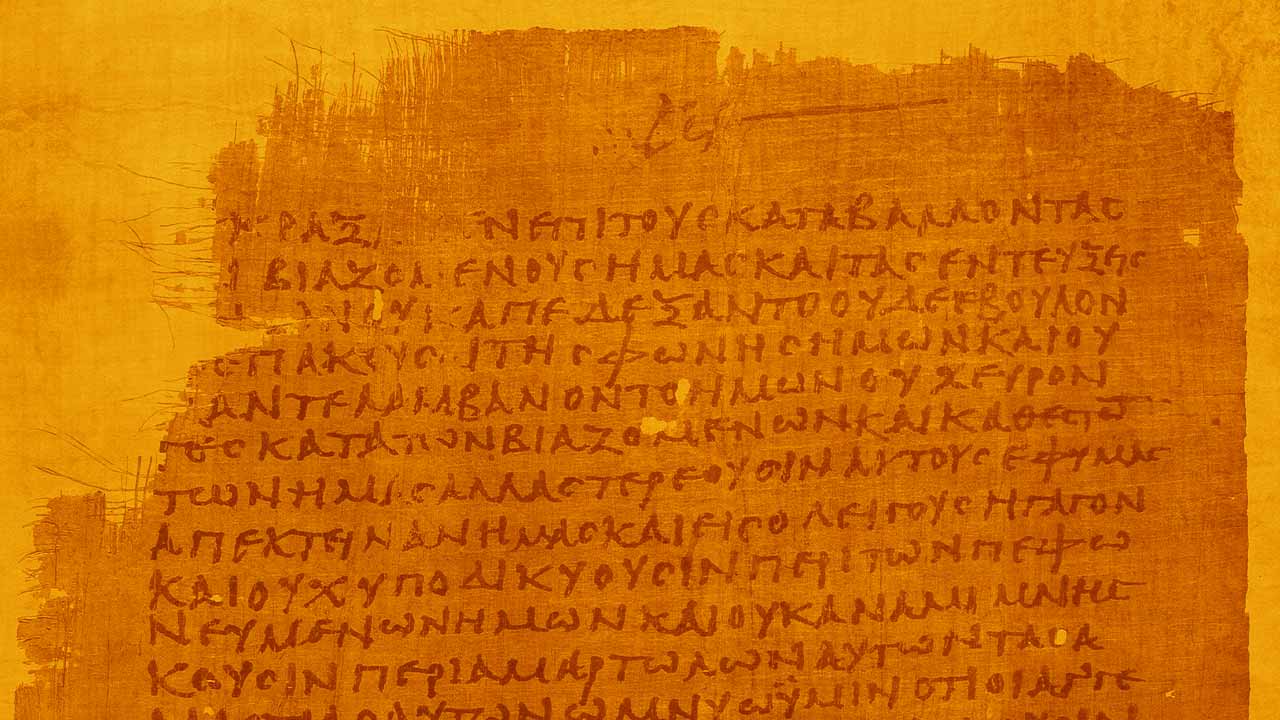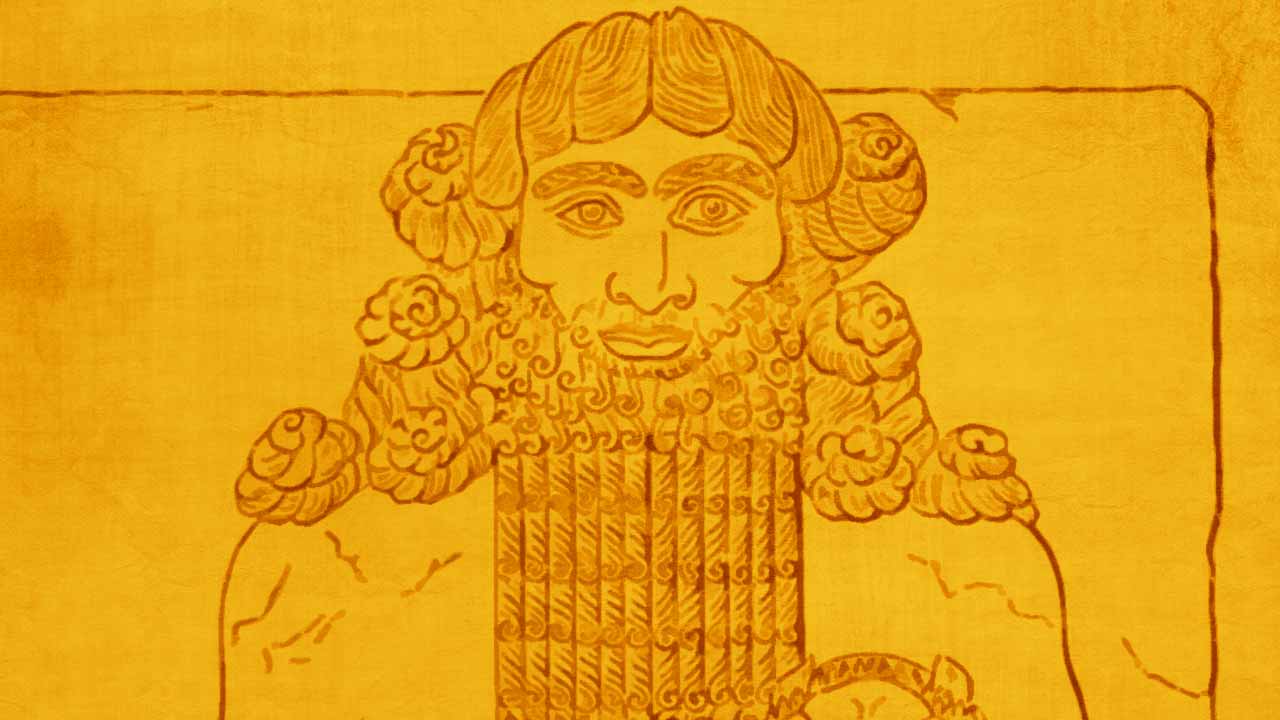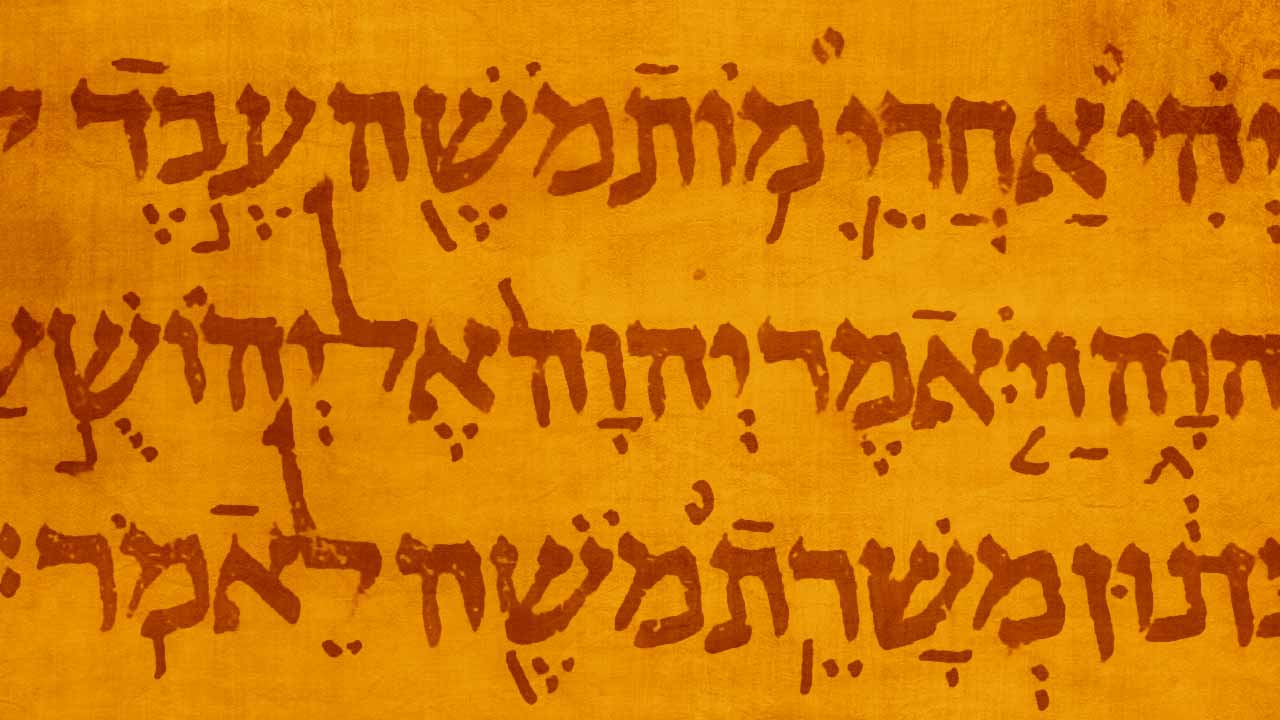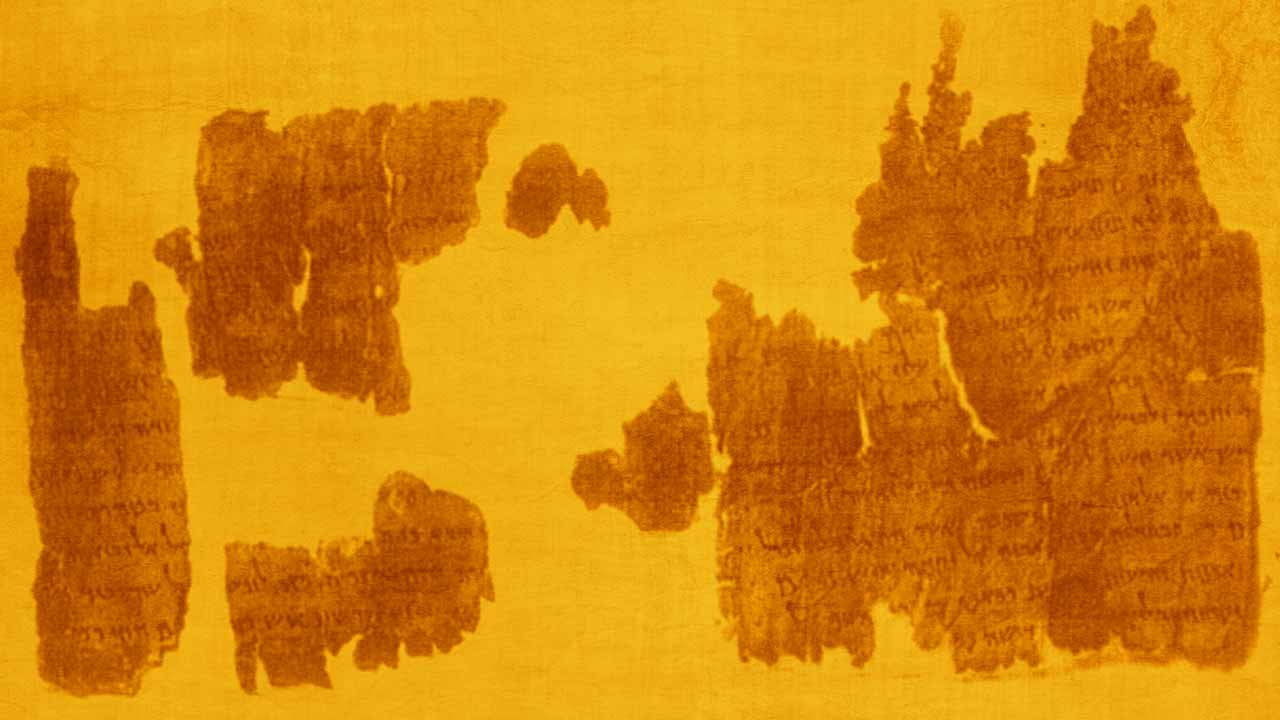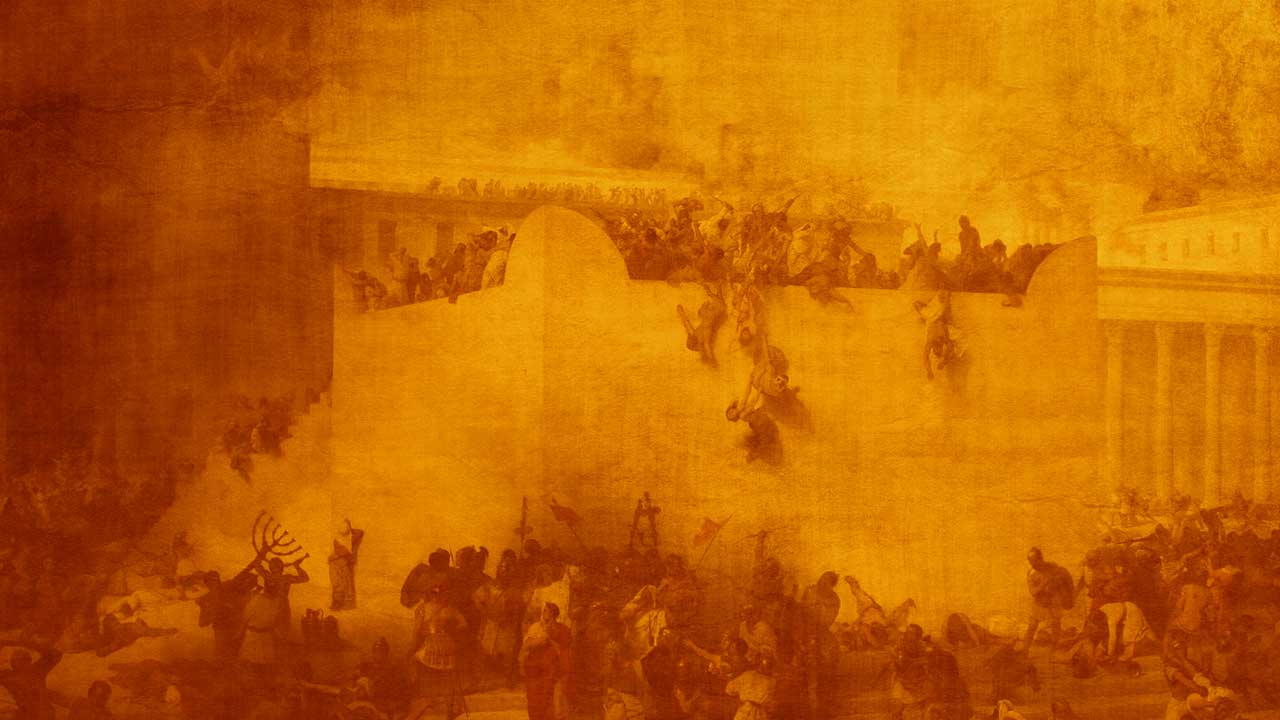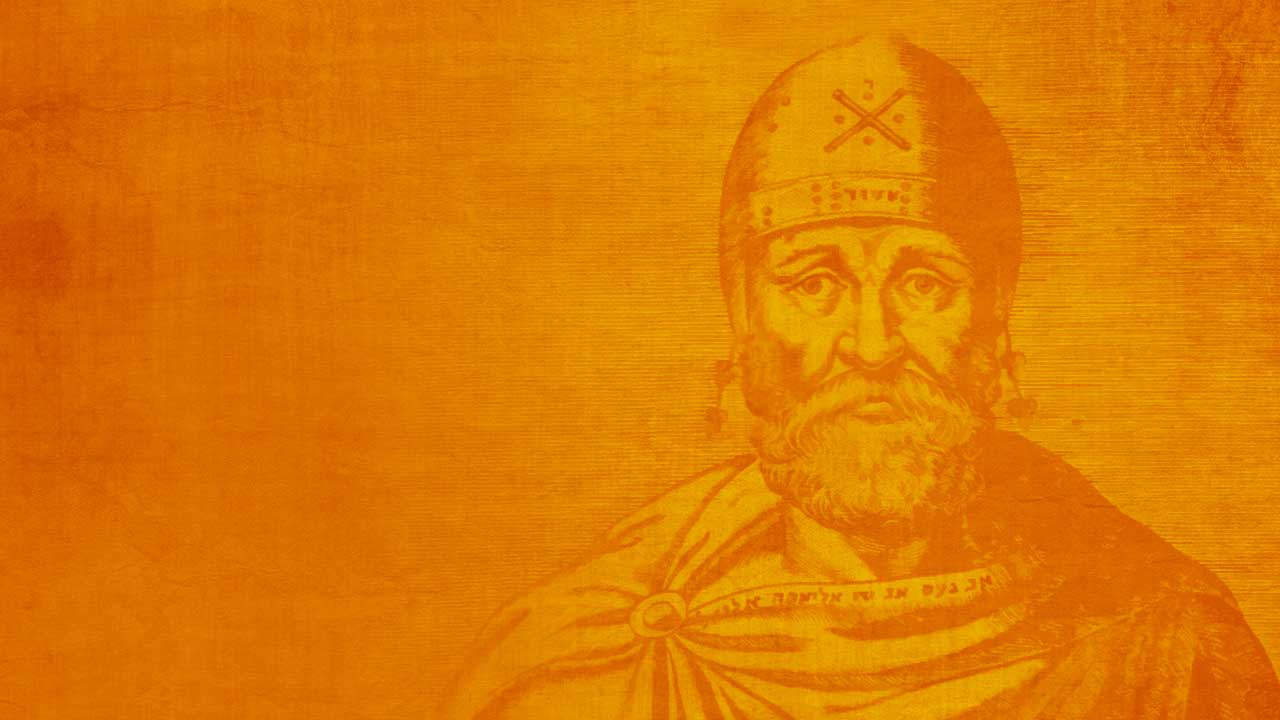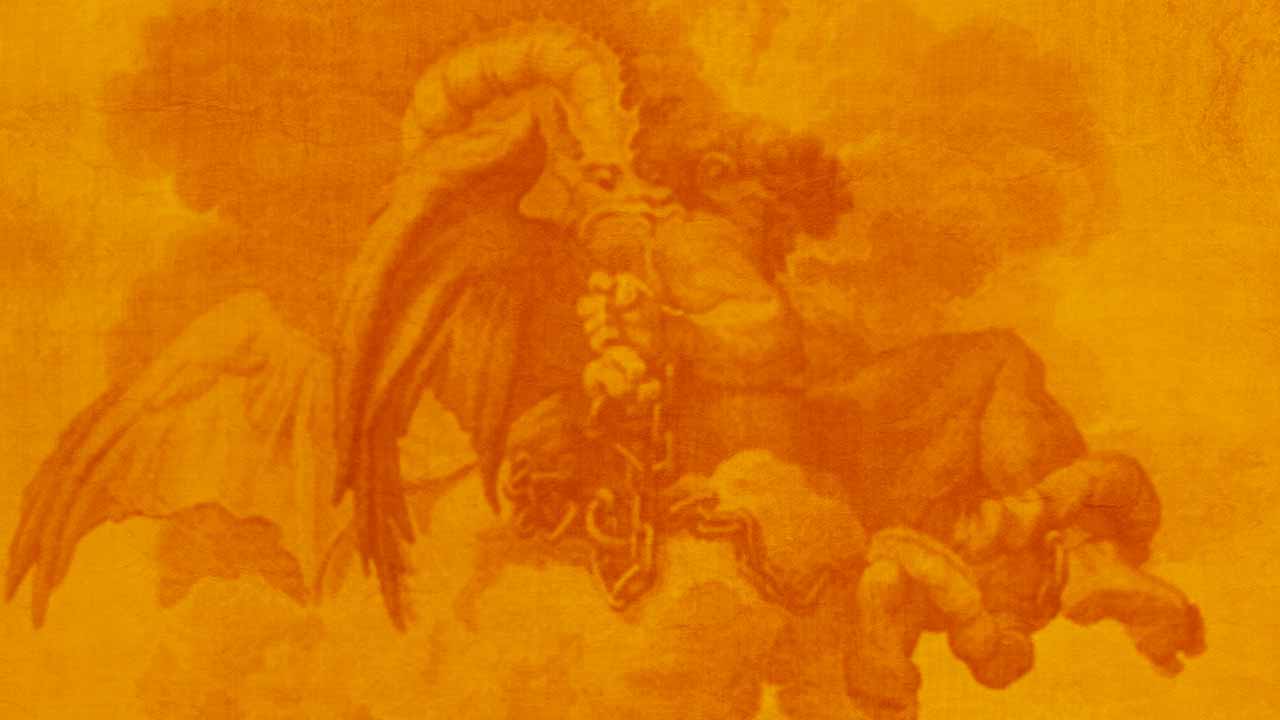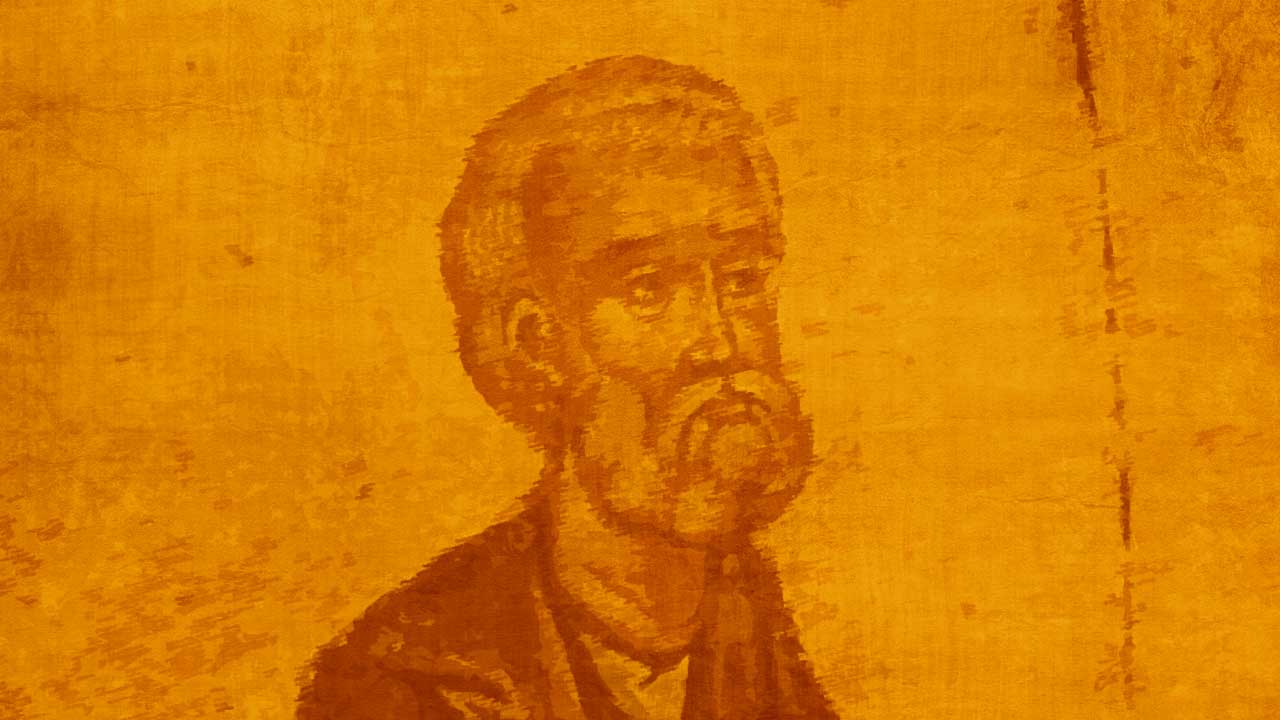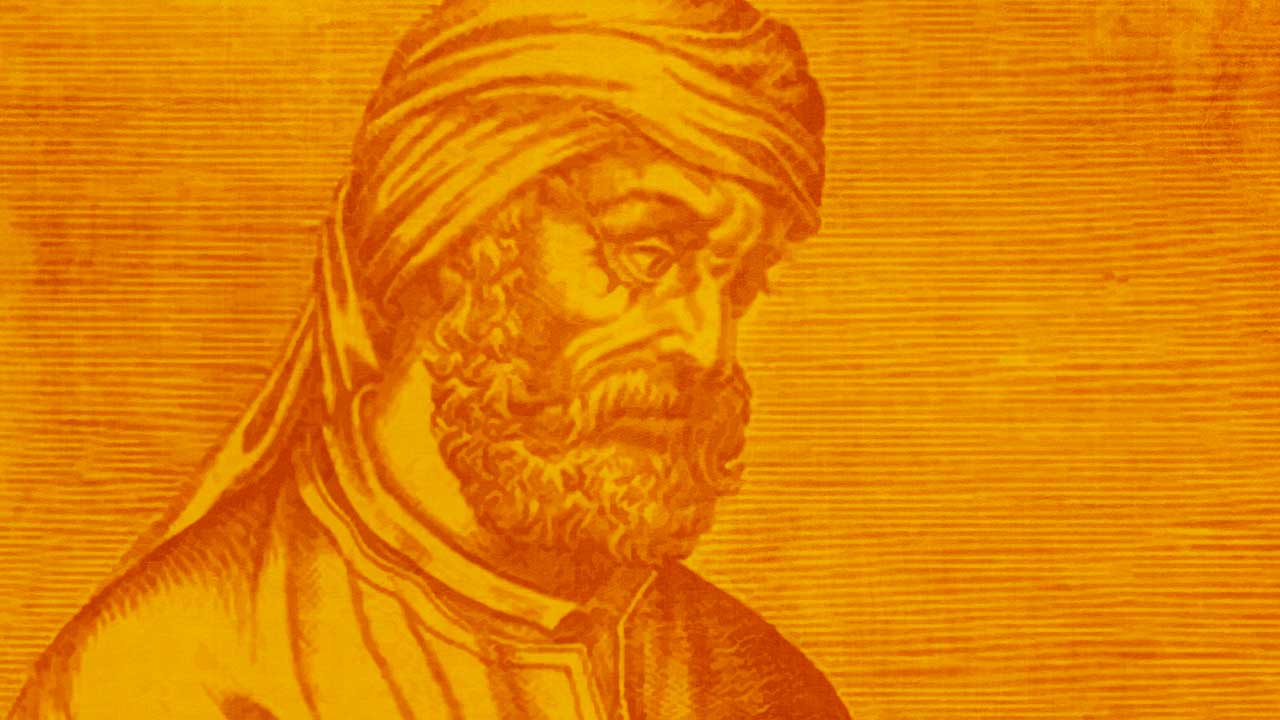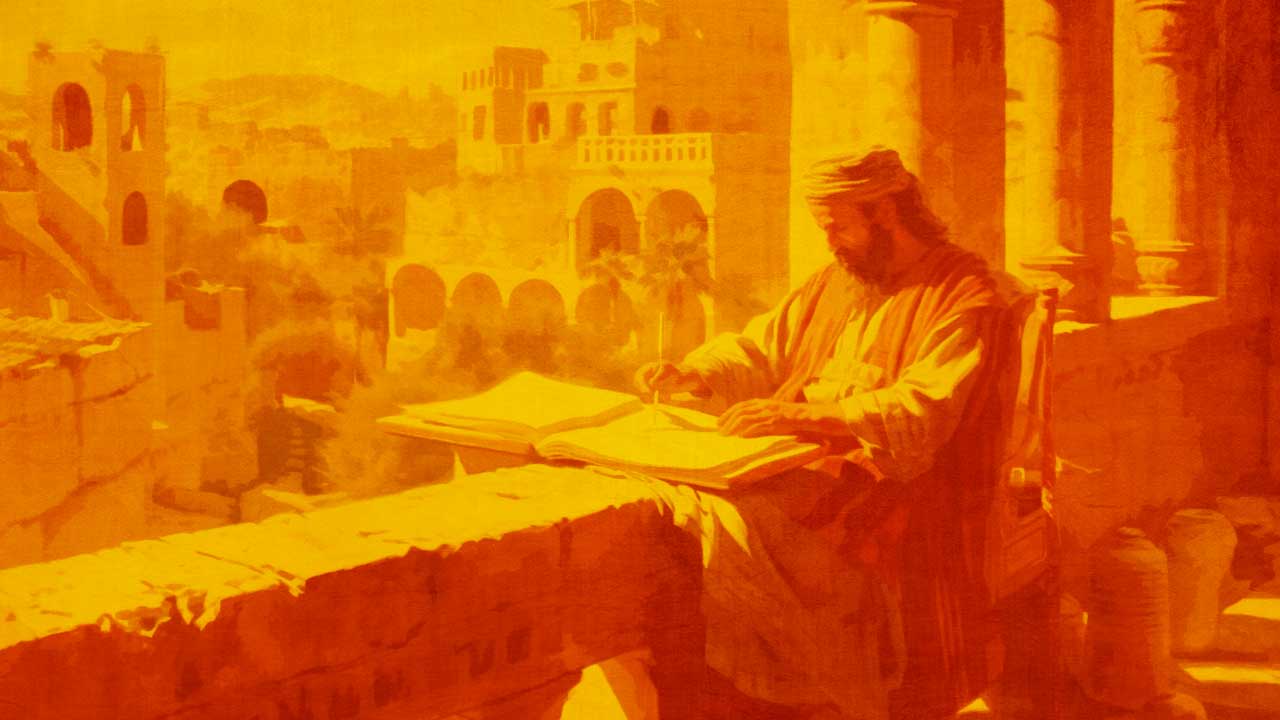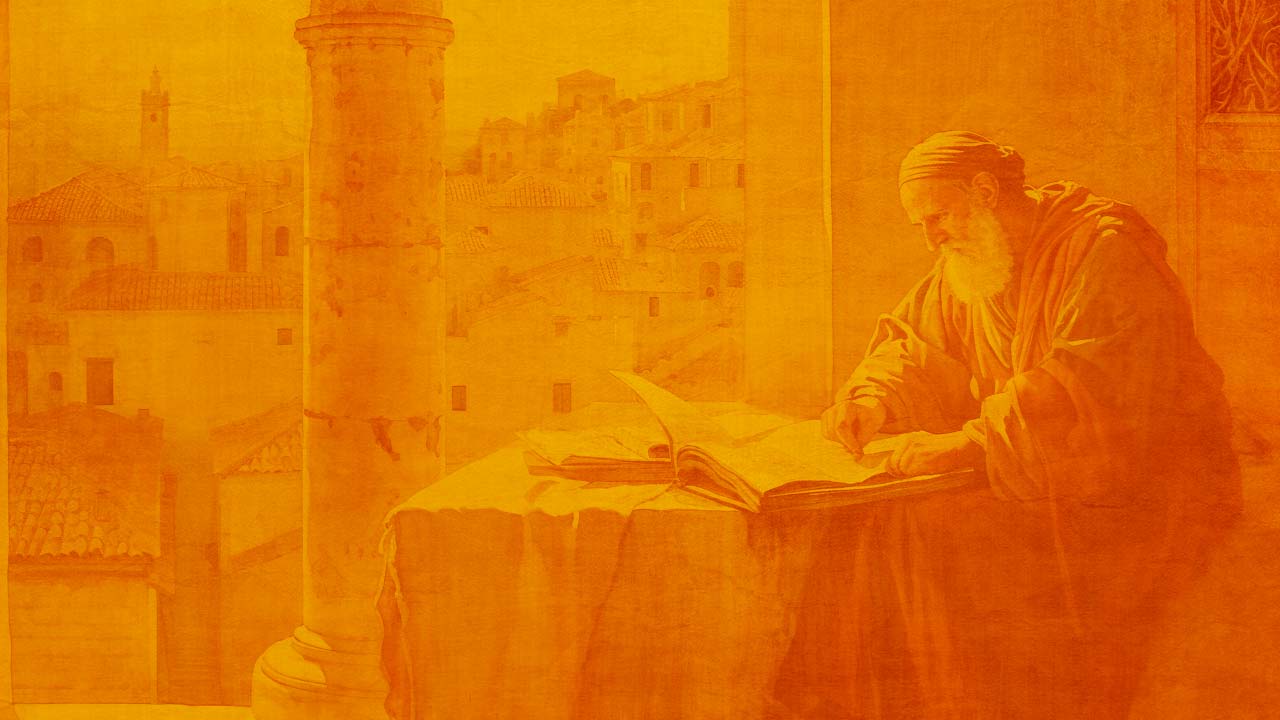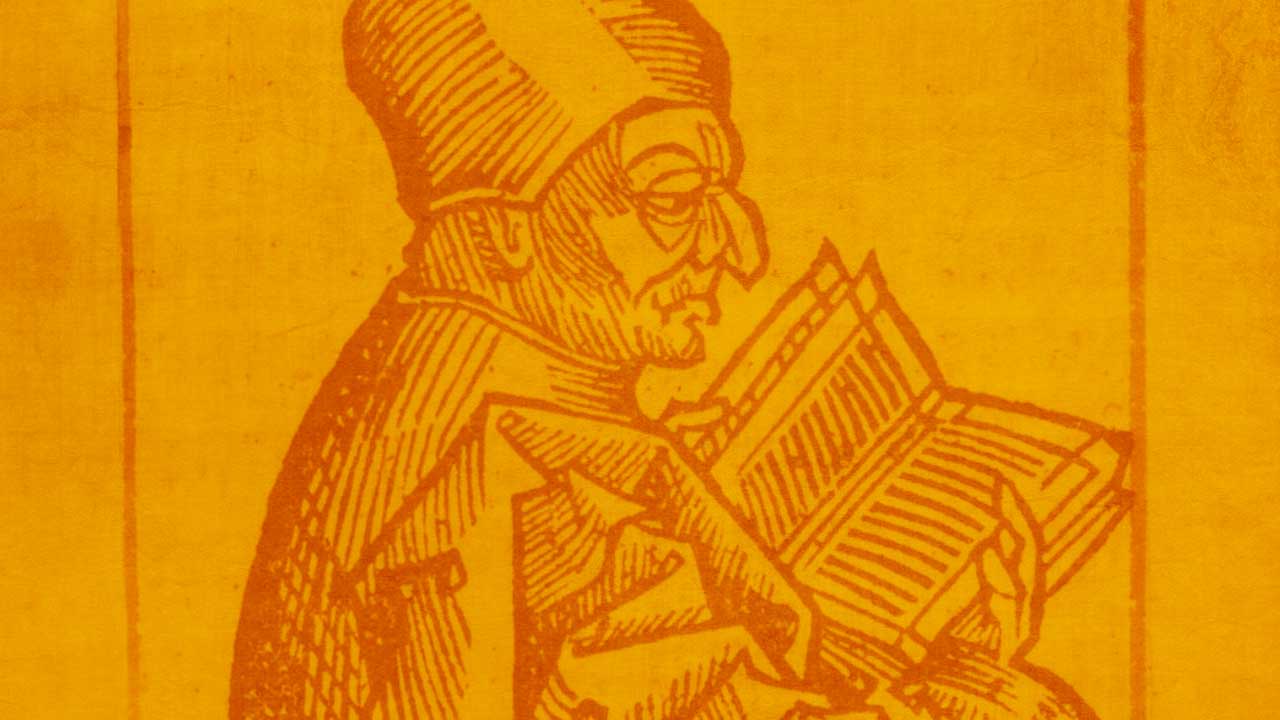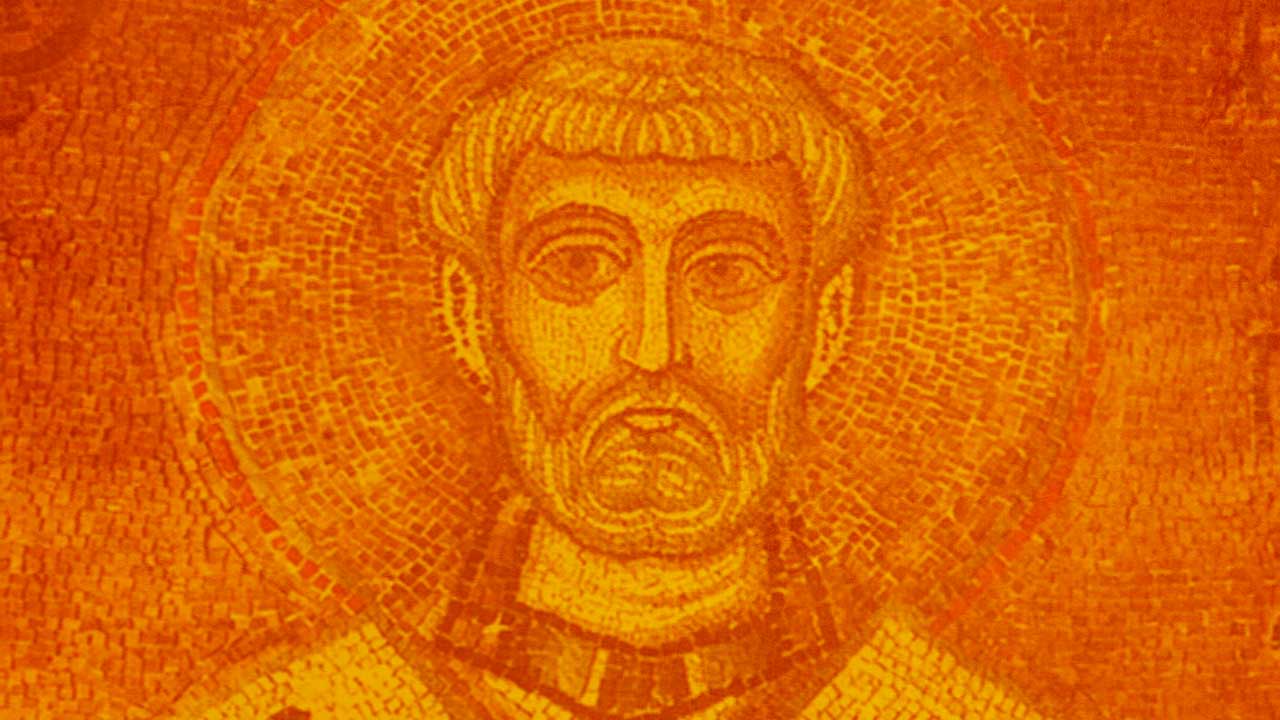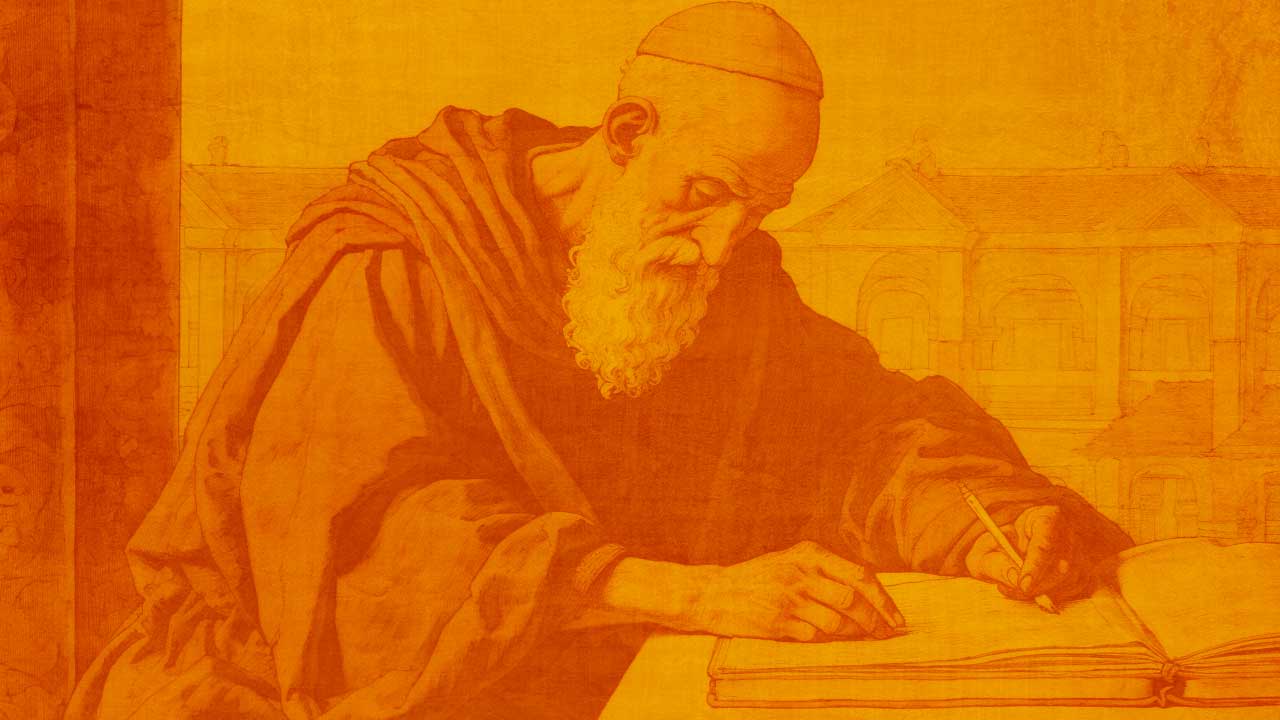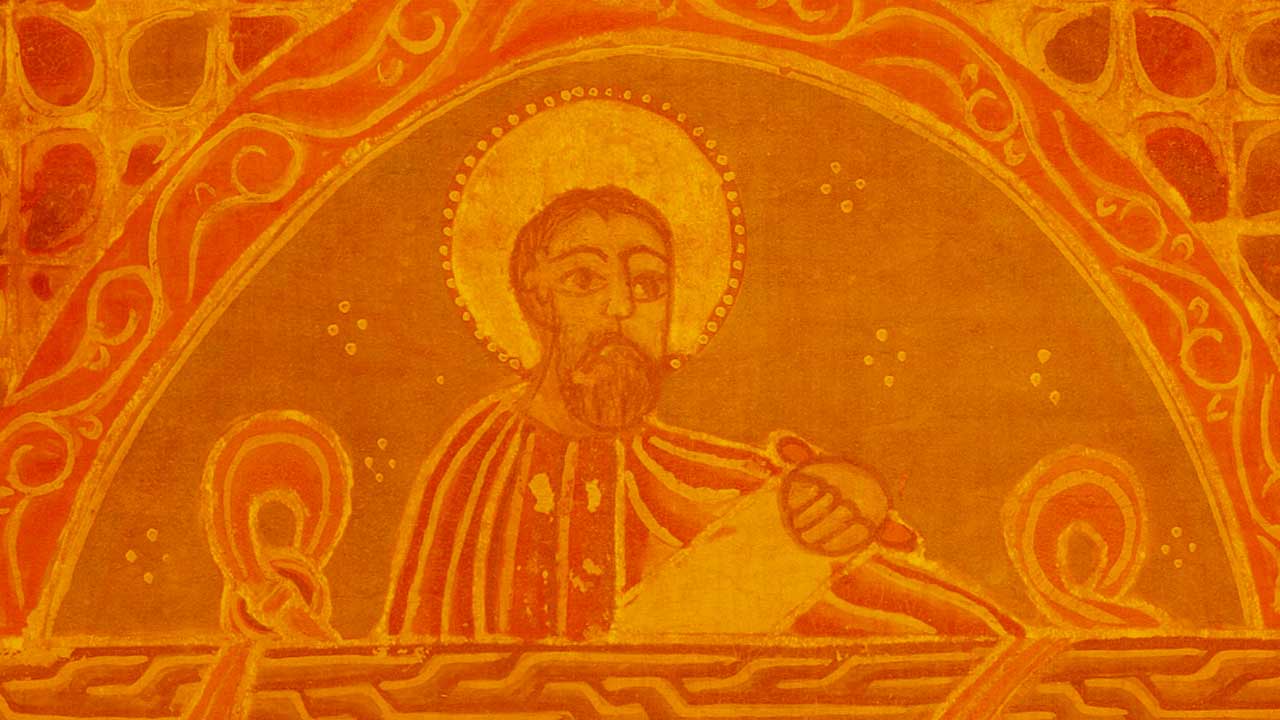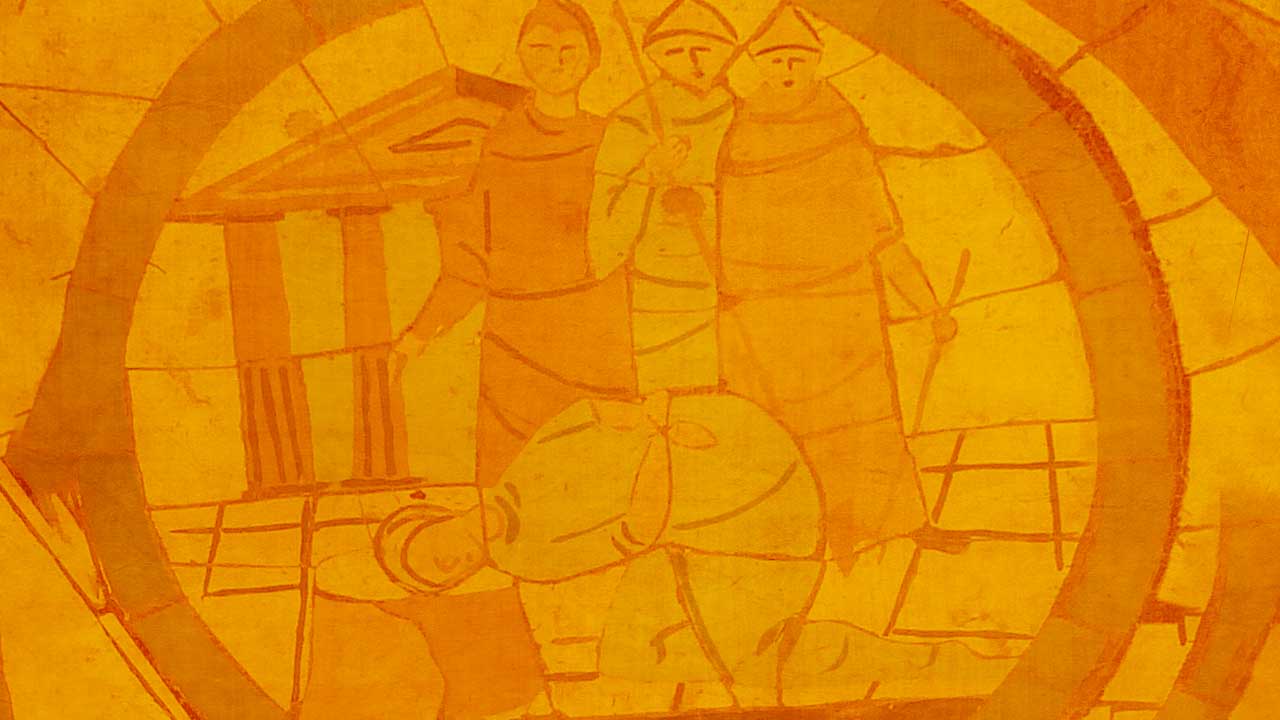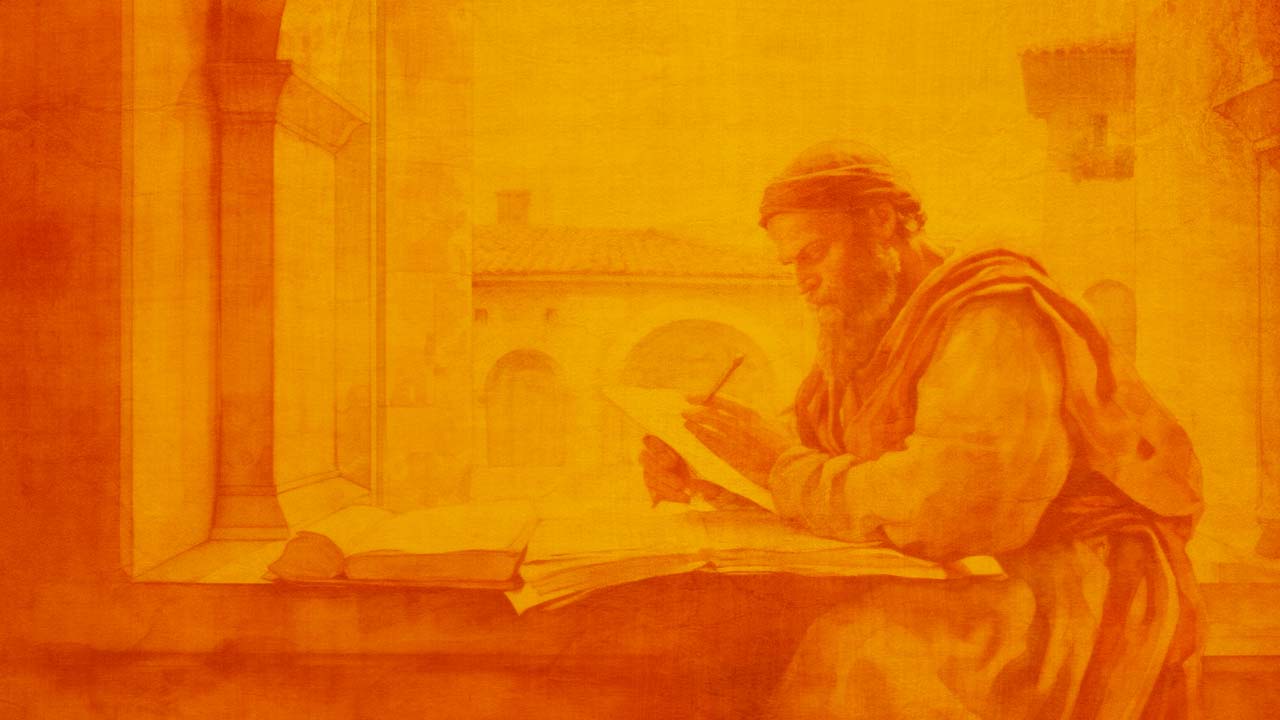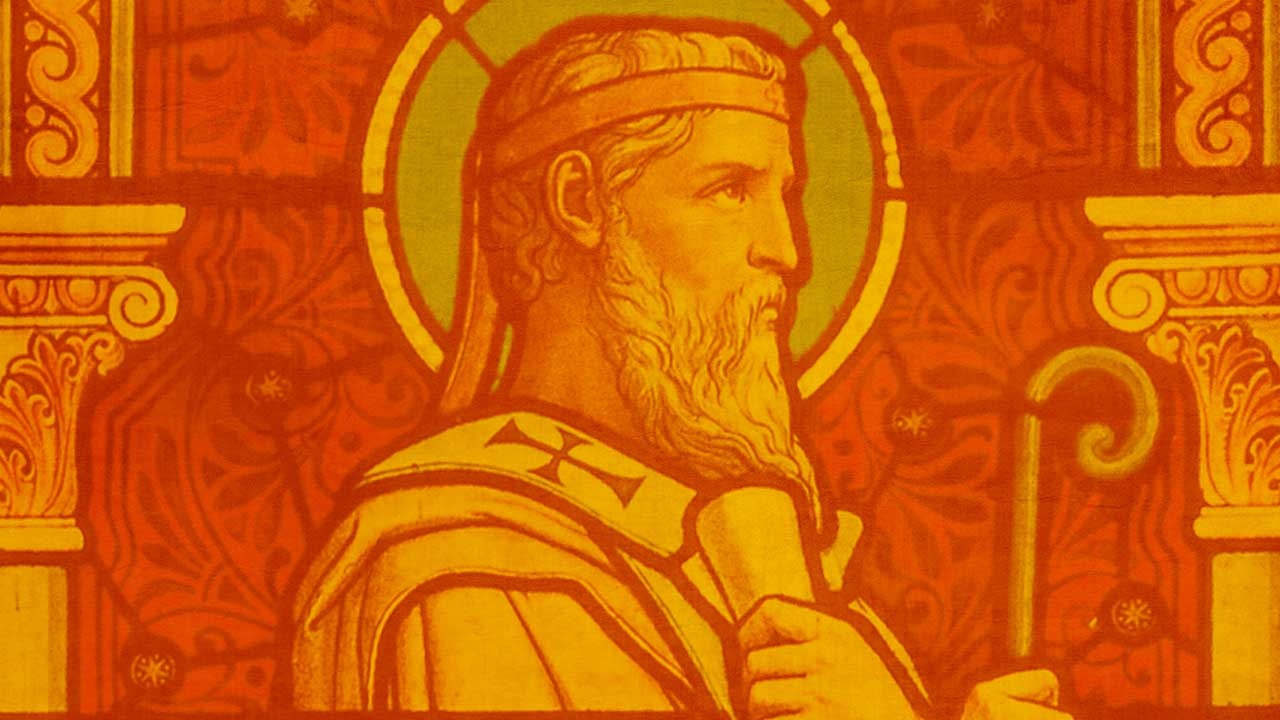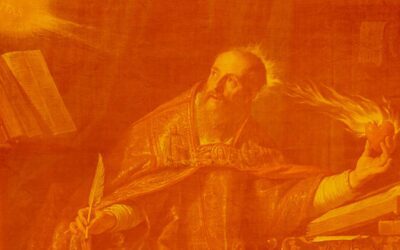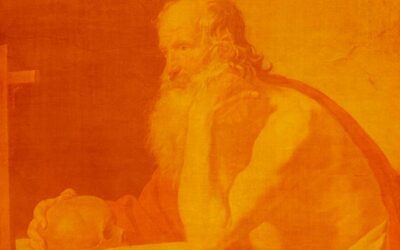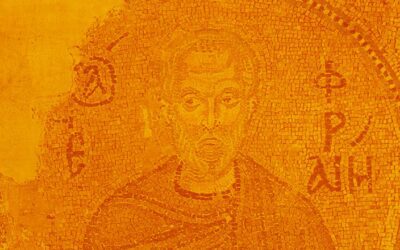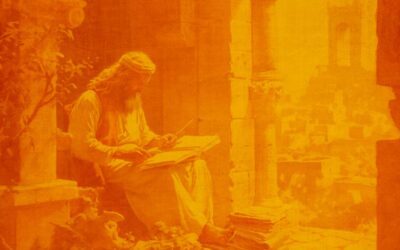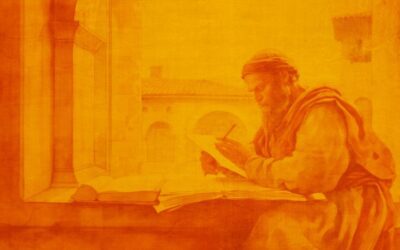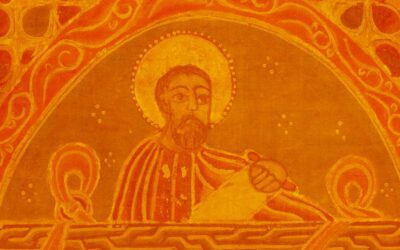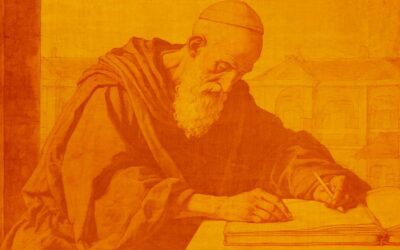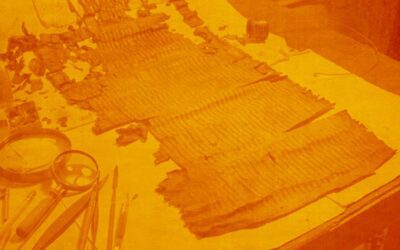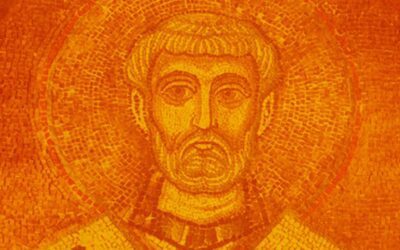Explore Sources
A database of excerpts from ancient documents that
retell the story of the Nephilim & the ‘sons of God’.
Jump to section
Before
Christ
EARLY
CHURCH
FIRST
CENTURY
MEDIEVAL
WRITERS
BEFORE CHRIST
Excerpts from ancient documents pre-dating Christ…
The Years Between
Although there are many documents that tell this story from the era before Christ, we cannot treat them all in the same way. The Genesis 6 passage is the oldest canon reference we have.
The subsequent sources came many hundreds of years later, and were not universally accepted amongst the Jews, indicating that not all religious sects viewed this story with the same weight.
FIRST CENTURY
Jewish philosophers, historians, and New Testament authors referring to the Genesis 6 story during the first century AD.
EARLY CHURCH
Early church fathers and others who reference and comment on the story of disobedient angels and their sons before the flood.
Your Title Goes Here
Your content goes here. Edit or remove this text inline or in the module Content settings. You can also style every aspect of this content in the module Design settings and even apply custom CSS to this text in the module Advanced settings.
Julius Africanus | Sethite View | 160 - 240 AD
When men multiplied on the earth, the angels of heaven came together with the daughters of men.
In some copies I found “the sons of God”. What is meant by the Spirit, in my opinion, is that the descendants of Seth are called the sons of God on account of the righteous men and patriarchs who have sprung from him, even down to the Saviour Himself;
but that the descendants of Cain are named the seed of men, as having nothing divine in them, on account of the wickedness of their race and the inequality of their nature, being a mixed people, and having stirred the indignation of God.
But if it is thought that these refer to angels, we must take them to be those who deal with magic and jugglery, who taught the women the motions of the stars and the knowledge of things celestial, by whose power they conceived the giants as their children, by whom wickedness came to its height on the earth, until God decreed that the whole race of the living should perish in their impiety by the deluge.
Rabbi Shimeon Bar Yochai | Judges View | 2nd Century
[need to add exact quote]
Acts of the Holy Apostle Thomas | Angel View | c. 200 – 250 AD
And when the apostle had thus spoken, behold, a great dragon came forth from his den, knocking his head, and brandishing his tail down to the ground, and, using a loud voice, said to the apostle: I shall say before you for what cause I have put him to death, since you are here in order to reprove my works….
And the apostle inquired of him, saying: Tell me, of what seed and of what race are you?
And he said to him: I am the offspring of the race of the serpent, and hurtful of the hurtful; I am son of him who hurt and struck the four brothers that stood; I am son of him who sits on the throne of destruction, and takes his own from what he has lent; I am son of that apostate who encircles the globe;
I am kinsman to him who is outside of the ocean, whose tail lies in his mouth; I am he who went into paradise through the hedge, and spoke with Eve what my father bade me speak to her; I am he who inflamed and fired Cain to kill his brother, and through me thorns and prickles sprang up in the ground;
I am he who cast down the angels from above, and bound them down by the desires of women, that earth-born children might be produced from them, and that I might work my will in them;
I am he who hardened the heart of Pharaoh, that he should murder the children of Israel, and keep them down by the hard yoke of slavery; I am he who caused the multitude to err in the desert when they made the calf; I am he who inflamed Herod and incited Caiaphas to the lying tales of falsehood before Pilate, for this became me; I am he who inflamed Judas, and bought him, that he should betray Christ;
I am he who inhabits and holds the abyss of Tartarus, and the Son of God has wronged me against my will, and has gathered his own out of me; I am the kinsman of him who is to come from the east, to whom also power has been given to do whatever he will upon the earth.
Lactantius | Angel View | 250 – 325 AD
When, therefore, the number of men had begun to increase, God in His forethought, lest the devil, to whom from the beginning He had given power over the earth, should by his subtlety either corrupt or destroy men, as he had done at first, sent angels for the protection and improvement of the human race; and inasmuch as He had given these a free will, He enjoined them above all things not to defile themselves with contamination from the earth, and thus lose the dignity of their heavenly nature.
He plainly prohibited them from doing that which He knew that they would do, that they might entertain no hope of pardon.
Therefore, while they abode among men, that most deceitful ruler of the earth, by his very association, gradually enticed them to vices, and polluted them by intercourse with women.
Then, not being admitted into heaven on account of the sins into which they had plunged themselves, they fell to the earth.
Commodianus | Angel View | c. 250 AD
When Almighty God, to beautify the nature of the world, willed that that earth should be visited by angels, when they were sent down they despised His laws.
Such was the beauty of women, that it turned them aside; so that, being contaminated, they could not return to heaven.
Rebels from God, they uttered words against Him.
Then the Highest uttered His judgment against them; and from their seed giants are said to have been born.
By them arts were made known in the earth, and they taught the dyeing of wool, and everything which is done; and to them, when they died, men erected images.
But the Almighty, because they were of an evil seed, did not approve that, when dead, they should be brought back from death.
Whence wandering they now subvert many bodies, and it is such as these especially that ye this day worship and pray to as gods.
Instructions of Commodianus in favour of christian discipline against the gods of the heathens
Eusebius of Caesarea | Angel View | 263 - 339 AD
And this argument is still further confirmed by Plutarch, in the passage where he says that the mythical narratives told as concerning gods are certain tales about daemons, and the deeds of Giants and Titans celebrated in song among the Greeks are also stories about daemons, intended to suggest a new phase of thought. Of this kind then perhaps were the statements in the Sacred Scripture concerning the giants before the Mood[flood], and those concerning their progenitors, of whom it is said, ‘And when the angels of God saw the daughters of men that they were fair, they took unto them wives of all that they chose,’ and of these were born ‘the giants the men of renown which were of old.’
For one might say that these daemons are those giants, and that their spirits have been deified by the subsequent generations of men, and that their battles, and their quarrels among themselves, and their wars are the subjects of these legends that are told as of gods. Plutarch indeed, in the discourse which he composed On Isis and the gods of the Egyptians, speaks as follows word for word:
THEY therefore do better who think that the incidents recorded concerning Typhon and Osiris and Isis refer to sufferings neither of gods nor of men, but of certain mighty daemons… For various degrees of virtue and vice are found in daemons just as in men.’
Preparation for the Gospel – Book 5, Chapter 5.
‘Eupolemus in his book Concerning the Jews of Assyria says that the city Babylon was first founded by those who escaped from the Deluge; and that they were giants, and built the tower renowned in history.
‘But when this had been overthrown by the act of God, the giants were dispersed over the whole earth.
Praeparatio Evangelica 9.17
Aphrahat the Persian Sage | Sethite View | 280 to 345 AD
When Noah saw that the generation of Seth was intermingled with the house of Cain, which was cursed, he determined that he would not marry a wife nor have children, so that they should not be intermingled and cursed with the house of Cain, the cursed seed.
Aphrahat, Demonstrations 13.5
Clement | Angel View | c. 200 - 400 AD
For of the spirits who inhabit the heaven, the angels who dwell in the lowest region, being grieved at the ingratitude of men to God, asked that they might come into the life of men, that, really becoming men, by more intercourse they might convict those who had acted ungratefully towards Him, and might subject every one to adequate punishment…
But when, having assumed these forms, they convicted as covetous those who stole them, and changed themselves into the nature of men, in order that, living holily, and showing the possibility of so living, they might subject the ungrateful to punishment, yet having become in all respects men, they also partook of human lust, and being brought under its subjection they fell into cohabitation with women; and being involved with them, and sunk into defilement and altogether emptied of their power, were unable to turn back to the first purity of their proper nature, their members turned away from their fiery substance: for the fire itself, being exhausted by the weight of lust, and changed into flesh, they trode the impious path downward.
For they themselves, being fettered with bonds of flesh, were constrained and strongly bound; wherefore they have no more been able to ascend into the heavens…
All things therefore being completed which are in heaven, and in earth, and in the waters, and the human race also having multiplied,
in the eighth generation, righteous men, who had lived the life of angels, being allured by the beauty of women, fell into promiscuous and illicit connections with these; and thenceforth acting in all things without discretion, and disorderly, they changed the state of human affairs and the divinely prescribed order of life, so that either by persuasion or force they compelled all men to sin against God their Creator.
In the ninth generation are born the giants, so called from of old, not dragon-footed, as the fables of the Greeks relate, but men of immense bodies, whose bones, of enormous size, are still shown in some places for confirmation.
But against these the righteous providence of God brought a flood upon the world, that the earth might be purified from their pollution, and every place might be turned into a sea by the destruction of the wicked.
Yet there was then found one righteous man, by name Noah, who, being delivered in an ark with his three sons and their wives, became the colonizer of the world after the subsiding of the waters, with those animals and seeds which he had shut up with him.
Athanasius of Alexandria | Sethite View | c. 296–373 AD
From Adam Seth was born, who was the third after Abel, and from Seth Enosh was born.
He hoped to be called the Lord and God. Therefore the children born from him bear the name ‘sons of God’, just like we also from the name of the master Christ are called Christians.
The race of Seth was segregated and not mixed with the race of Cain because of the curse which was laid on him by the God of the universe.
But later, when they observed how beautiful the daughters of Cain’s family were, they became enchanted and took them for themselves as wives, thus ruining their ancestral nobility.
Athanasius of Alexandria | Interpretations
Ephrem the Syrian | Sethite View | 306–373 AD
After recounting the ten generations from Adam to Noah, [Moses] said, Noah was five hundred years old and begot Shem and Ham and Japhet.
During this entire time Noah was an example to his sons by his virtue, for he had preserved his virginity for five hundred years among those of whom it was said, All flesh corrupted its path?
After he spoke of the virtue of Noah, [Moses] turned to speak about the evil desire that was working in the children of his generation saying, and it. came to pass that when men increased and daughters were born to them, . . For he called those of the house of Cain men, and said that daughters were born to them to show that the line of their generation had been cut off as we said above.
And the sons of God saw that the daughters of men were beautiful and they took to wife such of them as they chose.
He called the sons of Seth sons of God, those who, like the sons of Seth, had been called “the righteous people of God . The beautiful daughters of men whom they saw were the daughters of Cain who adorned themselves and became a snare to the eyes of the sons of Seth. Then Moses said, they took to wife such of them as they chose, because when they took them, they acted very haughtily over those whom they chose, A poor one would exalt himself over the wife of a rich man and an old man would sin with one who was young. The ugliest of all would act arrogantly over the most beautiful.
…
After these things [Moses] wrote of the offspring produced from the union of the daughters of Cain and the sons of Seth saying, There were mighty men in those days: and also afterward. because judges went into the daughters of mm, they bore the mighty men who were of old, the mighty men of renown.
The mighty men who were born were born to the feeble tribe of Cain and not to the mighty tribe of Seth. The house of Cain, because the earth had been cursed so as not to give them its strength, produced small harvests, deprived of its strength, just as it is today that some seeds, fruits, and grasses give strength and some do not.
Because, at that time, they were cursed and sons of the cursed and were dwelling in the land of curses, they would gather and eat produce that lacked nutrition. And those who ate these were without strength just
like the food that they ate.
As for the Sethites, on the other hand, because they were the descendants of the blessed [Seth] and were dwelling in the land along the boundary of the fence of Paradise, their produce was abundant and full of strength. So too were the bodies of those that ate that produce strong and powerful.
Therefore, these mighty sons of Seth went into the daughters of Cairn that fearful wanderer, and they begot for
the descendants of Cain mighty men of renown. [Moses] adds of old, because those thus born to the descendants of Cain were like Seth and Enosh, the first mighty men of renown.
After Moses spoke about the mighty men who were born into the tribe of Cain, whose women, even though
beautiful, were nevertheless smaller than the sons of Seth, he then said, the Lord saw that the wickedness of man was great in the earth, and that every inclination of the thoughts of their hearts was always evil
for in the years given to them for repentance they had increased their sins. The wickedness of mankind was great in the earth. that is, evil extended and spread throughout those tribes. The inclination of the thoughts of their hearts was always evil, for their sins were not committed only occasionally, but their sins were incessant; –
night and day they would not desist from their wicked thought.
Source – Commentary on Genesis (PDF)
Eusebius of Emesa | Angel View | c. 300 - 360 AD
For those who descended from Seth have become righteous ones, whence Scripture, consistent with itself, says later on: The sons of God saw daughters of men; this refers to the righteous ones, for there had been no alliance of the sons of Seth with those who descended from Cain.
Ambrose of Milan | Angel View | c. 340 - 397 AD
The author of divine Scripture does not wish these giants to be understood, according to the custom of poets, as children of the earth, but rather it asserts that they were begotten of angels and women, and calls them by this name to express the size of their bodies.
Ambrose of Milan, Noah and the Ark 4.8
[need to find another source]
Jerome | Angel View | c. 342 - 420 AD
Giants. In the Hebrew, it has the following: Falling ones (that is, annaphilim) were on the earth in those days.
And after these things, when the sons of the gods used to go in to the daughters of men and breed with them, these were the mighty ones from the beginning, men called by name.
Instead of falling ones or giants, Symmachus translated ‘violent ones’.
The name falling ones is indeed fitting both for angels and for the offspring of holy ones.
Jerome, Hebrew Question on Genesis
Nemesius of Emesa | Angel View | c. 350 - 420 AD
Of the incorporeal beings, only angels fell away, and not all of them, but some only, that inclined to things below and set their desire on things of earth, withdrawing themselves from their relations with things above, even from God.
Augustine of Hippo | Sethite View | c. 354–430 AD
THE SONS OF GOD WENT IN TO THE DAUGHTERS OF MEN, AND THEY BROUGHT FORTH CHILDREN. — They also often ask how angels could have sex with the daughters of men, of whom the giants are said to have been born, although some manuscripts, not only Latin but also Greek, read not of the angels, but of the sons of God. To solve this question some have claimed that they were just men, and so it could also be said of them that they were angels. Scripture, for example, says about John, who was a man: Behold, I send my angel before you to prepare your way. (Mt. 11:10; Mk. 3:1) But the problem is knowing how giants were born through sex of men, or how they could be joined with women, if they were not men, but angels. With regard to the giants, that is to say, very large and very strong men, I think that there is nothing strange in that they could have been born of men, because even after the flood they existed; as a matter of fact, in our own day there have also been some individual humans incredibly large, not only men but also women. It is therefore more credible that righteous men, called angels, or sons of God, (Cf. Gen. 6:2) moved by lust, sinned with women, instead of angels, who could not commit that sin because they lack bodies; although certain demons have been evil with women, so many things are said and by so many people, that it is not easy to decide on an opinion on this question. [Question 3]
Augustine Questions on Genesis Chapter 6
—
But whether Venus could bear Æneas to a human father Anchises, or Mars beget Romulus of the daughter of Numitor, we leave as unsettled questions.
For our own Scriptures suggest the very similar question, whether the fallen angels had sexual intercourse with the daughters of men, by which the earth was at that time filled with giants, that is, with enormously large and strong men.
At present, then, I will limit my discussion to this dilemma: If that which their books relate about the mother of Æneas and the father of Romulus be true, how can the gods be displeased with men for adulteries which, when committed by themselves, excite no displeasure?
If it is false, not even in this case can the gods be angry that men should really commit adulteries, which, even when falsely attributed to the gods, they delight in.
—-
When the human race, in the exercise of this freedom of will, increased and advanced, there arose a mixture and confusion of the two cities by their participation in a common iniquity. And this calamity, as well as the first, was occasioned by woman, though not in the same way; for these women were not themselves betrayed, neither did they persuade the men to sin, but having belonged to the earthly city and society of the earthly, they had been of corrupt manners from the first, and were loved for their bodily beauty by the sons of God, or the citizens of the other city which sojourns in this world.
Beauty is indeed a good gift of God; but that the good may not think it a great good, God dispenses it even to the wicked. And thus, when the good that is great and proper to the good was abandoned by the sons of God, they fell to a paltry good which is not peculiar to the good, but common to the good and the evil; and when they were captivated by the daughters of men, they adopted the manners of the earthly to win them as their brides, and forsook the godly ways they had followed in their own holy society. And thus beauty, which is indeed God’s handiwork, but only a temporal, carnal, and lower kind of good, is not fitly loved in preference to God, the eternal, spiritual, and unchangeable good….
It was the order of this love, then, this charity or attachment, which the sons of God disturbed when they forsook God, and were enamoured of the daughters of men. And by these two names (sons of God and daughters of men) the two cities are sufficiently distinguished. For though the former were by nature children of men, they had come into possession of another name by grace.
For in the same Scripture in which the sons of God are said to have loved the daughters of men, they are also called angels of God; whence many suppose that they were not men but angels.
Whether we are to believe that angels, who are of a spiritual substance, fell in love with the beauty of women, and sought them in marriage, and that from this connection giants were born.
In the third book of this work we made a passing reference to this question, but did not decide whether angels, inasmuch as they are spirits, could have bodily intercourse with women. For it is written, “Who maketh His angels spirits,” that is, He makes those who are by nature spirits His angels by appointing them to the duty of bearing His messages.
For the Greek word ἄγγελος, which in Latin appears as “angelus,” means a messenger. But whether the Psalmist speaks of their bodies when he adds, “and His ministers a flaming fire,” or means that God’s ministers ought to blaze with love as with a spiritual fire, is doubtful.
However, the same trustworthy Scripture testifies that angels have appeared to men in such bodies as could not only be seen, but also touched. There is, too, a very general rumour, which many have verified by their own experience, or which trustworthy persons who have heard the experience of others corroborate, that sylvans and fauns, who are commonly called “incubi,” had often made wicked assaults upon women, and satisfied their lust upon them; and that certain devils, called Duses by the Gauls, are constantly attempting and effecting this impurity is so generally affirmed, that it were impudent to deny it.
From these assertions, indeed, I dare not determine whether there be some spirits embodied in an aerial substance (for this element, even when agitated by a fan, is sensibly felt by the body), and who are capable of lust and of mingling sensibly with women; but certainly I could by no means believe that God’s holy angels could at that time have so fallen, nor can I think that it is of them the Apostle Peter said, “For if God spared not the angels that sinned, but cast them down to hell, and delivered them into chains of darkness, to be reserved unto judgment.”
I think he rather speaks of those who first apostatized from God, along with their chief the devil, who enviously deceived the first man under the form of a serpent. But the same holy Scripture affords the most ample testimony that even godly men have been called angels; for of John it is written: “Behold, I send my messenger (angel) before Thy face, who shall prepare Thy way.” And the prophet Malachi, by a peculiar grace specially communicated to him, was called an angel.
But some are moved by the fact that we have read that the fruit of the connection between those who are called angels of God and the women they loved were not men like our own breed, but giants; just as if there were not born even in our own time (as I have mentioned above) men of much greater size than the ordinary stature.
Was there not at Rome a few years ago, when the destruction of the city now accomplished by the Goths was drawing near, a woman, with her father and mother, who by her gigantic size overtopped all others? Surprising crowds from all quarters came to see her, and that which struck them most was the circumstance that neither of her parents were quite up to the tallest ordinary stature.
Giants therefore might well be born, even before the sons of God, who are also called angels of God, formed a connection with the daughters of men, or of those living according to men, that is to say, before the sons of Seth formed a connection with the daughters of Cain.
…
These words of the divine book sufficiently indicate that already there were giants in the earth in those days, in which the sons of God took wives of the children of men, when they loved them because they were good, that is, fair. For it is the custom of this Scripture to call those who are beautiful in appearance “good.” But after this connection had been formed, then too were giants born. For the words are: “There were giants in the earth in those days, and also after that, when the sons of God came in unto the daughters of men.” Therefore there were giants both before, “in those days,” and “also after that.” And the words, “they bare children to them,” show plainly enough that before the sons of God fell in this fashion they begat children to God, not to themselves,—that is to say, not moved by the lust of sexual intercourse, but discharging the duty of propagation, intending to produce not a family to gratify their own pride, but citizens to people the city of God; and to these they as God’s angels would bear the message, that they should place their hope in God, like him who was born of Seth the son of resurrection, and who hoped to call on the name of the Lord God, in which hope they and their offspring would be co-heirs of eternal blessings, and brethren in the family of which God is the Father.
But that those angels were not angels in the sense of not being men, as some suppose, Scripture itself decides, which unambiguously declares that they were men.
For when it had first been stated that “the angels of God saw the daughters of men that they were fair, and they took them wives of all which they chose,” it was immediately added, “And the Lord God said, My Spirit shall not always strive with these men, for that they also are flesh.”
For by the Spirit of God they had been made angels of God, and sons of God; but declining towards lower things, they are called men, a name of nature, not of grace; and they are called flesh, as deserters of the Spirit, and by their desertion deserted [by Him]. The Septuagint indeed calls them both angels of God and sons of God, though all the copies do not show this, some having only the name “sons of God.”
And Aquila, whom the Jews prefer to the other interpreters, has translated neither angels of God nor sons of God, but sons of gods. But both are correct. For they were both sons of God, and thus brothers of their own fathers, who were children of the same God; and they were sons of gods, because begotten by gods, together with whom they themselves also were gods, according to that expression of the psalm: “I have said, Ye are gods, and all of you are children of the Most High.”
For the Septuagint translators are justly believed to have received the Spirit of prophecy; so that, if they made any alterations under His authority, and did not adhere to a strict translation, we could not doubt that this was divinely dictated. However, the Hebrew word may be said to be ambiguous, and to be susceptible of either translation, “sons of God,” or “sons of gods.”
Let us omit, then, the fables of those scriptures which are called apocryphal, because their obscure origin was unknown to the fathers from whom the authority of the true Scriptures has been transmitted to us by a most certain and well-ascertained succession.
For though there is some truth in these apocryphal writings, yet they contain so many false statements, that they have no canonical authority. We cannot deny that Enoch, the seventh from Adam, left some divine writings, for this is asserted by the Apostle Jude in his canonical epistle.
But it is not without reason that these writings have no place in that canon of Scripture which was preserved in the temple of the Hebrew people by the diligence of successive priests; for their antiquity brought them under suspicion, and it was impossible to ascertain whether these were his genuine writings, and they were not brought forward as genuine by the persons who were found to have carefully preserved the canonical books by a successive transmission.
So that the writings which are produced under his name, and which contain these fables about the giants, saying that their fathers were not men, are properly judged by prudent men to be not genuine; just as many writings are produced by heretics under the names both of other prophets, and, more recently, under the names of the apostles, all of which, after careful examination, have been set apart from canonical authority under the title of Apocrypha.
There is therefore no doubt that, according to the Hebrew and Christian canonical Scriptures, there were many giants before the deluge, and that these were citizens of the earthly society of men, and that the sons of God, who were according to the flesh the sons of Seth, sunk into this community when they forsook righteousness.
Nor need we wonder that giants should be born even from these. For all of their children were not giants; but there were more then than in the remaining periods since the deluge. And it pleased the Creator to produce them, that it might thus be demonstrated that neither beauty, nor yet size and strength, are of much moment to the wise man, whose blessedness lies in spiritual and immortal blessings, in far better and more enduring gifts, in the good things that are the peculiar property of the good, and are not shared by good and bad alike.
It is this which another prophet confirms when he says, “These were the giants, famous from the beginning, that were of so great stature, and so expert in war. Those did not the Lord choose, neither gave He the way of knowledge unto them; but they were destroyed because they had no wisdom, and perished through their own foolishness.” [quoting Baruch 3:26-28]
John Cassian | Sethite View | c. 360 - 435 AD
Since by God’s design a reading from Genesis was produced a little while ago which made such a significant impression on us that now we can pursue properly what we have always wanted to learn, we also wish to know what should be thought about those apostate angels that are said to have had intercourse with the daughters of men.
Understood literally, would this be possible for a spiritual nature?
By no means should it be believed that spiritual natures can have carnal relations with women. But if this could ever have happened in a literal sense, why does it not occur now, at least occasionally, and why do we not see some people born of women without sexual intercourse, having been conceived by demons?
Although this beneficial and holy division between them existed up until that time, when afterward the sons of Seth – who were sons of God – saw the daughters of those who were born of the offspring of Cain, they were inflamed by desire for their beauty and took wives from them for themselves. They imparted their parents’ wickedness to their husbands and from the very first turned them away from their inborn holiness and ancestral simplicity.
But when it intermingled with the wicked generation it fell into profane and harmful deeds that it had dutifully learned at the instigation of demons, and thereupon it boldly instituted the strange arts of wizards, sleights and magic tricks, teaching its descendents that they should abandon the sacred cult of the Divinity and worship and adore the elements of fire and the demons of the air.
Conferences, 8.21 [Source – https://dlib.bc.edu/islandora/object/bc-ir:105015/datastream/PDF/view]
Sulpicius Severus | Angel View | 363 - 425 AD
When by this time the human race had increased to a great multitude, certain angels, whose habitation was in heaven, were captivated by the appearance of some beautiful virgins, and cherished illicit desires after them, so much so, that falling beneath their own proper nature and origin, they left the higher regions of which they were inhabitants, and allied themselves in earthly marriages.
These angels gradually spreading wicked habits, corrupted the human family, and from their alliance giants are said to have sprung, for the mixture with them of beings of a different nature, as a matter of course, gave birth to monsters.
God being offended by these things, and especially by the wickedness of mankind, which had gone beyond measure, had determined to destroy the whole human race.
John Chrysostom | Sethite View | c. 374 - 407 AD
[need to find quote!]
Homily on Genesis, 22.6–8
Cyril of Alexandria | Sethite View | c. 376 - 444 AD
That we rightly understand this passage is also very much confirmed by the interpretation of the other translators.
Aquila says: ‘When the sons of the gods saw the daughters of men’.
On the other hand, instead of ‘sons of the gods’, Symmachus rendered the expression as ‘sons of the rulers’.
They called the descendants of Seth and of Enosh sons of the gods, or better, sons of the rulers, because of the piety and godliness which was in them, and because they could defeat all adversaries: while God, I suppose, in all likelihood came to their aid, and made known all around this pious and holy generation, which was not mixed with that other one, that is to say, with the descendants from Cain and, what is more, from Lamech.
PHILASTRIUS OF BRESCIA | Sethite View | c. 384 AD
There is a heresy which asserts bout the giants that prior to the flood angels intermingled with women, and that, as a result, giants are imagined to have been born…
if one has thought it to be justified that angels, transformed into flesh, sinned in that way, and that they also remained in the flesh, or if one believed that they committed such carnality, history will decide that this is a bad explanation; like also the lies of the pagans and the poets assert that the gods and goddesses were guilty of horrible unions.
Basil of Seleucia | Sethite View | c. ??? - 458 AD
The sons of Seth are called ‘sons of God’, bearing that name as a symbol of their relationship with God.
MEDIEVAL WRITERS
Your Title Goes Here
Your content goes here. Edit or remove this text inline or in the module Content settings. You can also style every aspect of this content in the module Design settings and even apply custom CSS to this text in the module Advanced settings.
Procopius of Gaza | Sethite View | 465 to 528 AD
It is also written ‘Angels of God’. Some say that this is said about fallen powers; the mingling of angels with women, however, is impossible and against nature… Scripture calls the chosen race ‘angels’ or ‘sons of God’, namely the ones who originated from Seth and Enosh, and they are called such because of their holiness.
Procopius of Gaza
Book of the Cave of Treasures | Sethite View | c. 600 AD
And the sons of Seth had intercourse with the daughters of Cain; and they conceived by them and brought forth mighty men, the sons of heroes, like towers,
Hence early writers have erred and written, “The angels came down from heaven, and had intercourse with mankind, and from them were born mighty men of renown,”
But this is not true; they have said this because they did not understand,
Now see, my brother readers, and know that this is neither in the nature of spiritual beings, nor in the nature of the impure and evil-doing demons who love adultery;
for there are no males nor females among them, nor has there been even one added to their number since they fell. If the devils were able to have intercourse with women, they would not leave one single virgin undefiled in the whole human race.
Book of the Cave of Treasures 18
George Syncellus | c. 800 AD
Interesting because he retells both the Sethite intepretation AND the angelic one in great details. Basically quoting the book of Enoch in detail and ascribing it to Enoch.
Here is the full text of the Chronology but in Latin and Greek.
https://archive.org/stream/georgiussyncell01nikgoog/georgiussyncell01nikgoog_djvu.txt
Al Tabari | Angel View | c. 839 - 923 AD
The angels were astonished at the acts of disobedience committed by the human beings on earth, claiming they would do better than them.
Therefore, God challenged the angels to choose two representatives among them, who would descend to earth and be endowed with bodily desires.
During their stay on earth, they fell in love with a woman named Zohra (often identified with Venus). She told them she would become intimate with them if they joined her in idolatry and tell her how to ascend to heaven.
The angels refused and remained pious.
Later they met her again and the woman this time stated she would become intimate with them if they drank alcohol. The angels thought that alcohol could not cause great harm and therefore, they accepted the condition.
After they were drunk, they became intimate with her and after noticing a witness, they killed them.
On the next day, Harut and Marut regretted their deeds but could not ascend to heaven anymore due to their sins, as their link to the angels was broken.
Thereupon, God asked them, either their punishment shall be in this world or in the hereafter. They chose to be punished on earth and therefore were sent to Babel as a test, teaching humans magic but not without warning them that they were just a temptation.
DIG DEEPER
Learn more about these writers and what they wrote. Understanding why they wrote what they did is key to finding reliable answers to giant questions.
Augustine’s NUANCED Insight on the ‘sons of God’ in Genesis 6:1-4
Unraveling Augustine’s comprehensive interpretation on the ‘sons of God’ in Genesis 6:1-4. While his opinions varied, discover how he supports his preference to believe righteous men were involved but his flirtations with the possibility of angels being the culprits.
Jerome and his Insights on the Nephilim in Genesis 6:1-4
Explore the interpretation of Genesis 6:1-4 through the lens of Jerome’s writings. Delve into his views on the “sons of God” along with commentaries from the scholar T. R Hayward.
Ephrem the Syrian’s Unique take on Noah’s Virginity, The sons of God and the antediluvian Mighty Men
Let’s look at Genesis 6:1-4 through the lens of another of the earliest writers that interpreted the ‘sons of God’ as human instead of as angelic beings.
Sulpicius Severus: The Nephilim and The Angels That Forsook God
Sulpicius Severus, a Christian writer and historian from ancient France, provides a fascinating interpretation of Genesis 6:1-4. Discover his views on the mysterious nephilim, their origins, and the involvement of angels in the emergence of antediluvian giants.
Commodianus on the Interactions of Angels and Humanity in Genesis
Explore the interpretation of this ancient Christian poet regarding the union of angels and humans, the birth of giants, and the worship of idols. Discover his perspective on the historical events described in the passage and the influence of 2nd temple literature.
Eusebius of Caesarea’s Insights on the Nephilim in Genesis 6:1-4
Eusebius of Caesarea, a respected Christian historian, offered unique insights into the mysterious passage of Genesis 6:1-4. Discover his interpretation of the Nephilim, the sons of God, and their connections to angels and ancient mythologies. Explore the thought-provoking perspectives that shed light on this enigmatic biblical narrative.
Lactantius on Genesis 6:1-4 and the Angels that Sinned
Explore what early Christian advisor to emperor Constantine Lactantius had to say about Genesis 6:1-4, as we delve into how the ancients interpreted this intriguing passage.
What the Genesis Apocryphon Says about the Watchers and Nephilim
One of the original seven Dead Sea scrolls found by shepherds in 1947, the Genesis Apocryphon is also known as the “Tales of the Patriarchs” or the “Apocalypse of Lamech”.
Clement of Rome’s Insights on Genesis 6:1-4
Delve into Clement of Rome’s perspective on Genesis 6:1-4 and uncover his intriguing interpretation of this ancient biblical passage.


